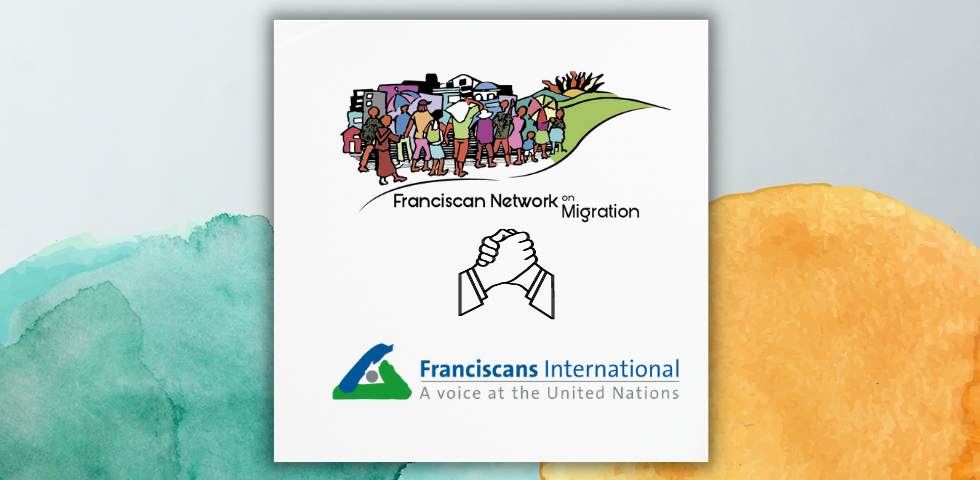The Franciscan Network on Migration (RFM) is pleased to share some of our plans for 2021. These plans include collaboration with Franciscans International (FI).
Advocacy Committee
In 2021, we have convened a new advocacy committee that is able to facilitate response to human rights violations, intimidation, and harassment of migrants and refugees. This committee will also formalize our advocacy agenda with FI.
Presentations to the United Nations
In May and June, we’ll be strategizing with Franciscans International around human trafficking in the context of migration, for presentations before the different bodies of the United Nations. We’ll also be collecting information on African migration in the Americas. In July, we’ll be organizing an open an open assembly to discuss and present the advances made with this study. Together with Franciscans International we will also document and present information related to migration and other timely and pertinent topics related to human rights and migration during 2021.

Human Rights and Migration Training
Our annual human rights training course for migration workers will be implemented in two phases this year. Franciscans International will collaborate with us to present “Part I: Online training on human rights and migration.” Four 90-minute sessions will be organized for September and October 2021.
Those that complete the Part I training will be invited to participate in Part II: Experiential training on human rights and migration in Tegucigalpa, Honduras, in early November 2021. During these three days of on-site training, individuals who are actively working on migration issues will spend the mornings in reflection and discussions, and the afternoons in visits to communities that have been heavily impacted by migration.
Assembly
Our second annual assembly with Franciscans International will take place in early December.
Outreach and Consolidation
In 2021, the RFM is also focusing on strengthening the ties among our Mexican teams, and outreaching to Franciscans in the United States, Colombia and Brazil.


Franciscans are sign of peace in the world, we pray that we too have to imate them as signs of peace too in the world and most especially countries like Syria and other part of the world which as being affected by war.